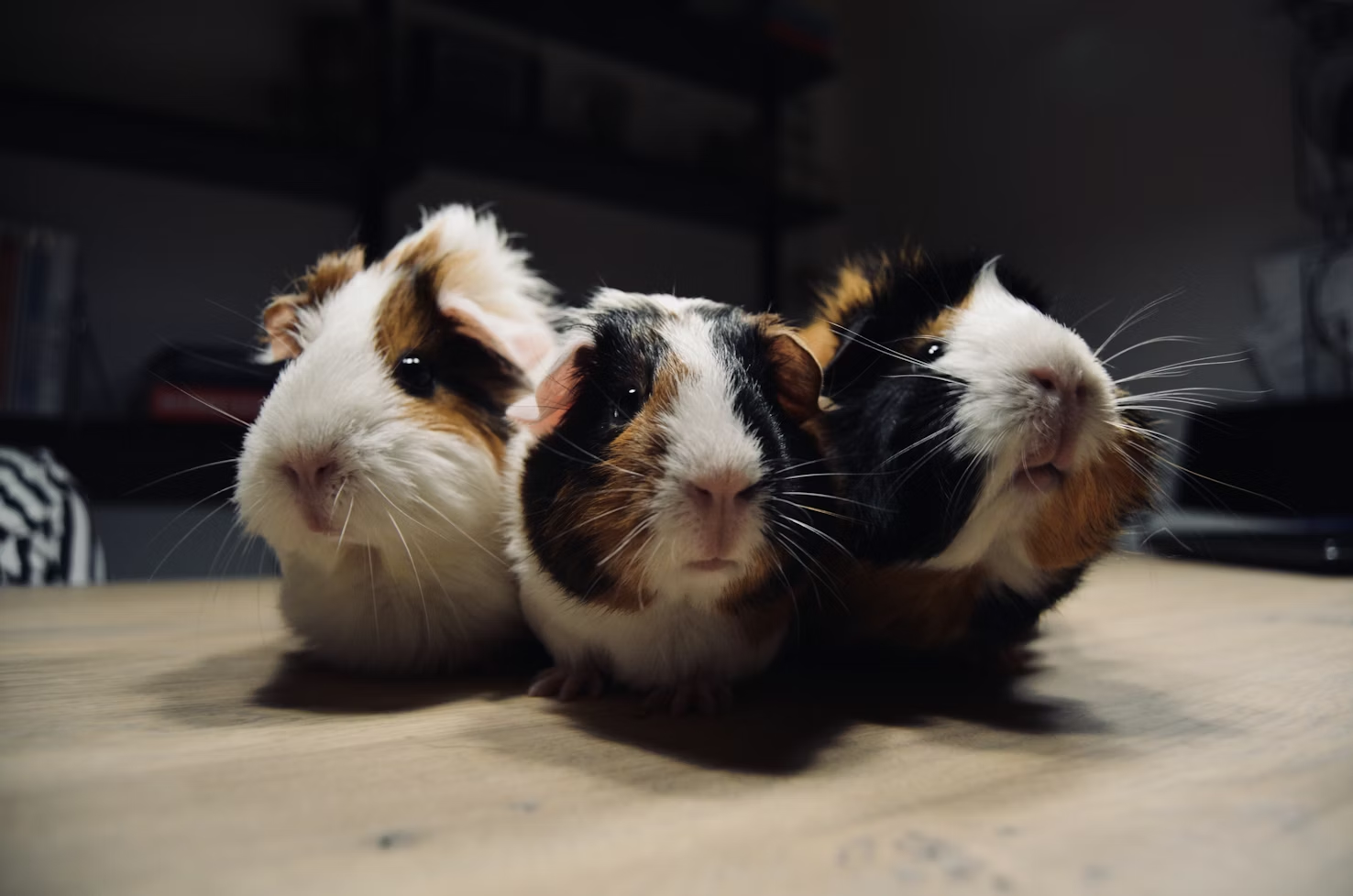
Guinea pigs have excellent hearing, especially at high frequencies. They are more sensitive to high-pitched sounds than people. These pets should not be exposed to sounds loud enough that you would need to raise your voice to be heard in a conversation. Guinea pigs also take frequent naps, so they need periods of quiet time to rest throughout the day.
Understanding what it might be like to hear through the ears of a guinea pig is easier if these animals’ hearing is compared to the human sense of hearing.
The Difference Between a Guinea Pig’s and a Human Being’s Sense of Hearing
According to a recent article published in the Journal of the Acoustical Society of America, guinea pigs have hearing similar to ours. These animals’ sense of hearing is close to humans when compared to other rodents.
People hear best at frequencies ranging from 1000 to 5000 Hz, which is within the range of frequency of human speech. People generally can perceive sounds up to 20 000 Hz but the threshold becomes lower as we age.
A guinea pig’s hearing is best from 8000 to 16 000 Hz but they can hear well at frequencies up to about 40 – 50 000 Hz. So high-pitched sounds that we cannot even perceive could be easily audible to a guinea pig.
Do Guinea Pigs Have Better Hearing than Dogs?
Guinea pigs hear sounds of a significantly wider range than dogs.
Dogs hear sounds between 67 – 45000 Hz compared to the guinea pig’s range of 40 – 50000 Hz (the lower margin is a little higher – 54 Hz – according to a report published by Lousiana State University). So a guinea pig can perceive lower and higher frequencies than a dog.
Both species need more volume to hear sounds on the outer boundaries of their range of sounds. So, a guinea pig and a dog would hear a subtle noise at 30000 Hz. The sound would need to be much louder at 45000 Hz for a guinea pig to hear it but a dog may not even perceive it at that frequency.
Do Guinea Pigs Have Better Hearing than Cats?
Guinea pigs are less sensitive to sounds than cats. Cats are among the most perceptive animals when it comes to sounds.
Cats can hear sounds at 45-67000 Hz, a wider range than guinea pigs perceive. A guinea pig hears sounds in the range of 40-50000 Hz, significantly narrower than a cat’s range.
Both cats and guinea pigs are much more sensitive to the sounds in the middle of the frequency range they hear. In order words, both will perceive a quiet noise at 20000 – 30000 Hz but will need much more volume at the upper and lower ranges of the frequencies they perceive.
Do Loud Sounds Bother Guinea Pigs?
The fact that guinea pigs hear better at higher frequencies means that loud sounds are more overwhelming for them than for us. This is important if you are considering guinea pigs as pets for your kids, for example, since households with young kiddos tend to be loud and chaotic.
Normal conversation will not bother your pet. When it comes to TV and music, think that, if the noise is a little loud to us, it is probably way too loud for your guinea pig.
A high-pitched sound of moderate intensity could be uncomfortably loud to a guinea pig. Some sounds that are imperceptible to us could be audible for your pet.
Guinea pigs are crepuscular animals and like to take frequent naps during the day. Your guinea pigs’ habitat should be placed away from high traffic areas and having periods of quiet time is essential for them to rest appropriately.
Unfamiliar sounds may cause more distress to your pet than background noises the animal may have grown to associate with safety and comfort.
Do Guinea Pigs Like Music?
There have not been many studies done on this particular subject. From guinea pigs’ hearing studies, it is safe to assume that high-pitched music may bother your guinea pig’s ears. However, music at lower frequencies and soft for human hearing should be well tolerated by your pets.
How To Tell if a Sound is Bothering Your Guinea Pig
An assessment of your pet’s comfort should include any behavior change, to start with.
If you notice that your pet behaves differently following any changes in the environment, for example after you moved to a new apartment or got a bigger (and louder) TV, the behavior change could be due to the change in the environment. That is because any change can induce stress in a household pet.
Some of the common signs of stress in guinea pigs include the following:
- Hiding, refusing to come out of the habitat
- Sleeping more than usually
- Not moving
- Nervousness
- Irritability
- Not wanting to be handled
- Poor appetite or a change in voiding
- Hair loss
- Baring teeth, hissing
How To Keep Your Guinea Pig Comfortable
There are several general rules to keep in mind:
- Your guinea pig’s habitat should be placed in a quiet, low-traffic area in your home.
- Like most animals, guinea pigs do not like loud or sudden noises.
- They do need quiet time to take their naps during the day.
- It is acceptable and beneficial to talk to your guinea pig to make sure they know your voice and can anticipate when you are about to feed them or pick them up.
- If you hear any sounds in your home, remember that your guinea pig probably perceives those sounds more acutely.
- If you recognize distress in your pet, consider noise a potential culprit.
To Conclude
Signs of distress can be very non-specific in any animal.
One may not realize that decreased appetite could be a stress response to noise, for example. Some pets may not show any signs but still be uncomfortable. Just remember that your guinea pigs are quite sensitive to noises and they need their quiet time t
Recent Posts
Guppy fish Dwarf gourami Choosing the right tank mates is so important for a peaceful community aquarium. Can guppies and dwarf gouramis live in one tank? Dwarf gourami and guppies can live...
The doggy odor is a well-known phenomenon, and Berners are among the breeds that can get particularly smelly. Why do Bernese Mountain Dogs smell? Bernese Mountain Dogs can get smelly, especially...

